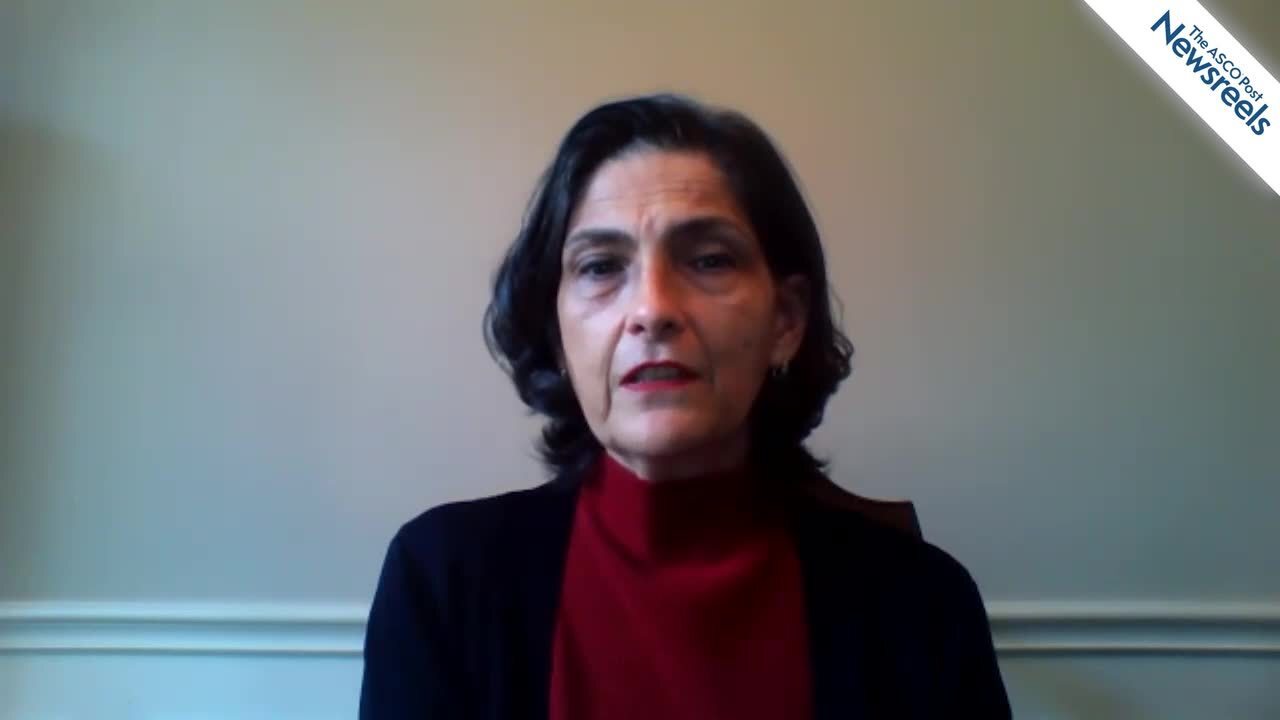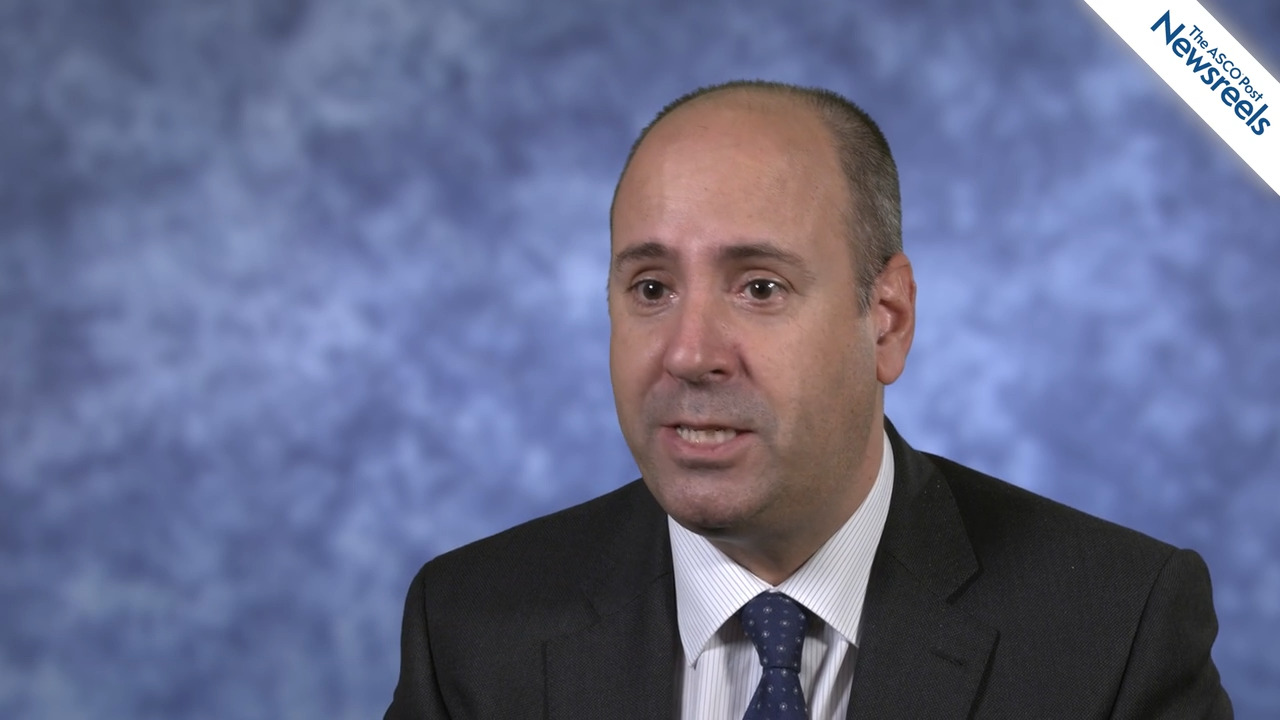Komal Jhaveri, MD, on Triple-Negative and Metastatic Breast Cancers: New Data on Neratinib, Fulvestrant, and Trastuzumab
2021 San Antonio Breast Cancer Symposium
Komal Jhaveri, MD, of Memorial Sloan Kettering Cancer Center, discusses the latest updates from the SUMMIT trial, which explored the combinations of neratinib/fulvestrant/trastuzumab and neratinib plus trastuzumab, as well as fulvestrant alone. The combination regimens appeared to benefit patients with hormone–receptor positive, HER2-mutated metastatic breast cancer who have had prior exposure to CDK4/6 inhibitors, and those with HER2-mutated triple-negative disease (Abstract GS4-10).
The ASCO Post Staff
Peter Schmid, MD, PhD, of Barts Cancer Institute, discusses phase III findings from KEYNOTE-522, in which researchers found a generally consistent event-free survival benefit among patients with early-stage high-risk triple-negative breast cancer who were treated with neoadjuvant pembrolizumab plus chemotherapy followed by adjuvant pembrolizumab (Abstract GS1-01).
The ASCO Post Staff
Banu Arun, MD, of The University of Texas MD Anderson Cancer Center, discusses a session she moderated that included discussion of how exercise and diet may reduce the risk of breast cancer, and emerging non-endocrine treatments that may help prevent the disease.
The ASCO Post Staff
Ann H. Partridge, MD, MPH, of Dana-Farber Cancer Institute, discusses what she considers to be the most notable presentations at the 2021 San Antonio Breast Cancer Symposium. They include the focus on early-stage disease, especially in the TEXT/SOFT, RxPonder, and KEYNOTE-522 trials, as well as abstracts from the Early Breast Cancer Trialists’ Collaborative Group; and new data and novel therapeutics in the advanced setting.
The ASCO Post Staff
Sara A. Hurvitz, MD, of the University of California, Los Angeles Jonsson Comprehensive Cancer Center, discusses phase III findings from the DESTINY-Breast03 trial, which compared ado-trastuzumab deruxtecan (T-DXd) with standard-of-care trastuzumab emtansine (T-DM1) in patients with HER2-positive metastatic breast cancer. T-DXd showed superior progression-free survival across subgroups of patients previously treated with trastuzumab and a taxane, including those with brain metastases (Abstract GS3-01).
The ASCO Post Staff
Javier Cortés, MD, PhD, of the International Breast Cancer Center, discusses the final phase III results of KEYNOTE-355, which showed that pembrolizumab and chemotherapy improved overall and progression-free survival, compared with placebo and chemotherapy, for patients with previously untreated, locally recurrent, inoperable or metastatic triple-negative breast cancer (Abstract GS1-02 ).





